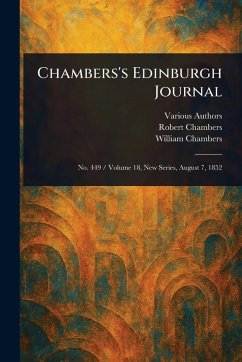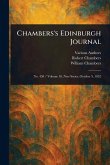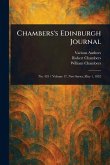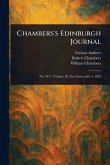Delve into 19th-century British life and culture with "Chambers's Edinburgh Journal," a fascinating window into the past. This meticulously reproduced issue, Vol. 18, No. 449, dated August 7, 1852, offers a collection of essays and articles reflecting the era's social landscape. As a prominent periodical of its time, Chambers's Journal provides invaluable insights into British history and general European affairs. Explore a range of topics, capturing the essence of 19th-century thought and societal trends. This volume serves as a primary source for understanding the nuances of the period. A must-have for history enthusiasts and anyone interested in media studies, this republication preserves a unique and valuable piece of historical literature. Discover the voices and perspectives that shaped Victorian Britain. This work has been selected by scholars as being culturally important, and is part of the knowledge base of civilization as we know it. This work is in the public domain in the United States of America, and possibly other nations. Within the United States, you may freely copy and distribute this work, as no entity (individual or corporate) has a copyright on the body of the work. Scholars believe, and we concur, that this work is important enough to be preserved, reproduced, and made generally available to the public. We appreciate your support of the preservation process, and thank you for being an important part of keeping this knowledge alive and relevant.
Bitte wählen Sie Ihr Anliegen aus.
Rechnungen
Retourenschein anfordern
Bestellstatus
Storno









